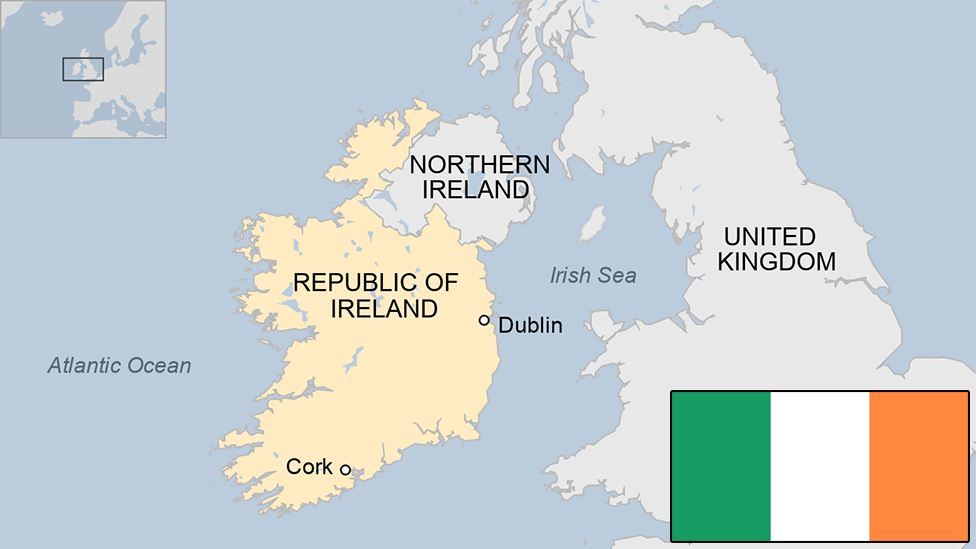How Ireland's new Prime Minister Leo Varadkar embodies social change
- Published
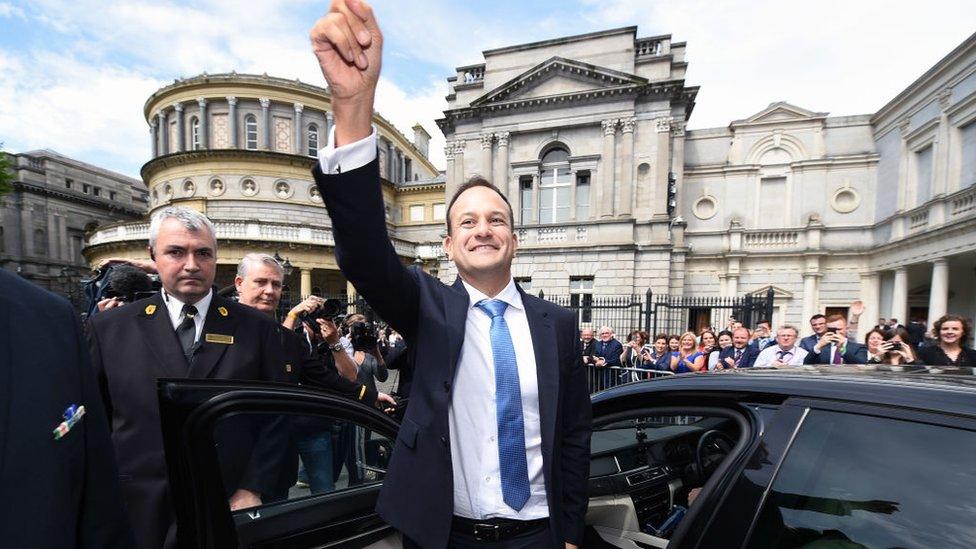
I don't think there was any dancing in Dublin to mark Leo Varadkar's installation as taoiseach (prime minister). But there was some in Mumbai, from where his father, Ashok, hails.
No-one lives in the family home at the moment, but local people took part in a one-and-a-quarter mile (2km) long procession to a Hindu Temple to pray for Mr Varadkar when he was elected as the leader of Republic of Ireland's biggest party, Fine Gael.
Politics, to some extent, runs in the family. Two of Mr Varadkar's uncles were imprisoned for campaigning - peacefully - for Indian independence. Ireland became a republic in the late 1940s, around the same time as Britain withdrew from India.
The countries were two of the British Empire's most turbulent territories, but until the last few years, no-one thought they would be united in the person of the taoiseach.
Ashok met his wife, Miriam, while working in a hospital in the UK. She was a nurse from County Waterford in Ireland and after a spell in India, they settled in Dublin, where Leo was born in 1979.
His political ambitions were clear from a very young age. When he was eight, a shopkeeper asked him what he wanted to do when he grew up. Leo replied that he wanted to be the minister for health.
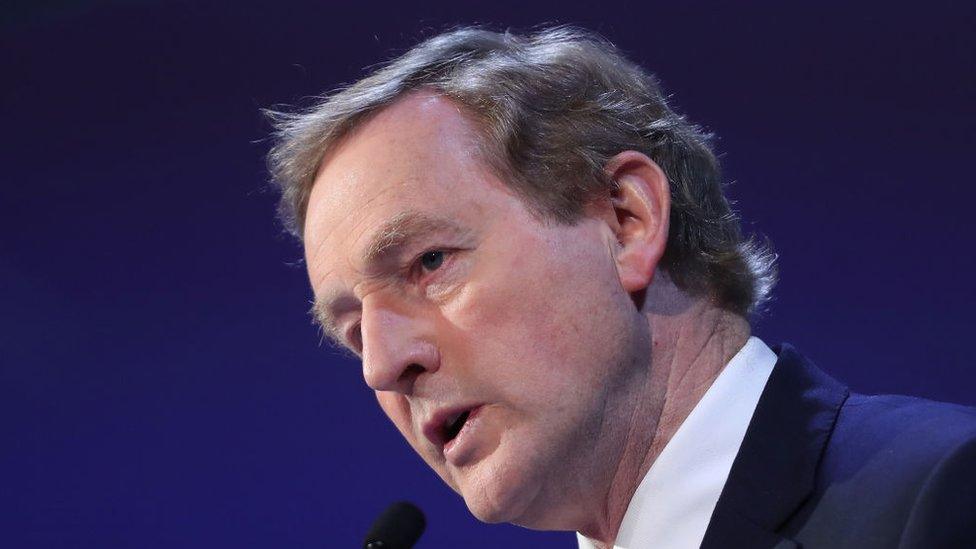
Mr Varadkar succeeded Enda Kenny as Ireland's prime minister
He demonstrated his commitment to getting that job when he was at university, first standing for election while he was studying for a medical degree at Trinity College in his home city.
Ten years ago he was elected to the Irish parliament. While moving through ministerial positions - including health - he gained a reputation as a "sharp-shooting, straight-talking media darling", in the words of one journalist. He chimed with the mood of modern Ireland, as the embodiment of deep social change.
When Mr Varadkar was a young child, stereotypes of Ireland still prevailed abroad - novels and films had featured thatched cottages drenched in drizzle and church steeples shrouded in mist. The reality was different, but the country was one of the poorest in Western Europe and there were relatively few immigrants.
But in the 1990s, the Celtic tiger became a global phenomenon. Low corporate tax rates and financial deregulation meant the Irish economy became more associated with Apple and Google than with agriculture and Guinness.
With wealth came secularisation. While the change was more obvious among younger people in the cities, it affected the whole nation. The Roman Catholic Church, which had been the most powerful force in the country, was weakened by child abuse scandals and divorce and homosexuality were legalised.
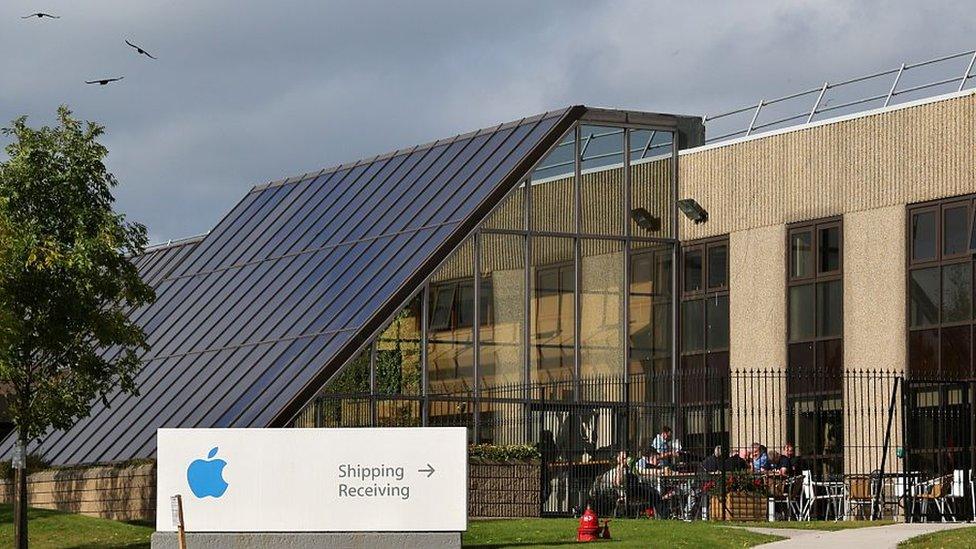
Ireland's economic transformation has seen companies like Apple move there
When Mr Varadkar became the first Irish cabinet minister to come out as gay in 2015, he said: "It's not a big deal for me any more and I hope it isn't for anybody else - it shouldn't be." That has basically proved to be the case.
The international headlines about Mr Varadkar have focused on his sexuality, ethnicity and age. But in Ireland itself, those factors haven't been mentioned much during the race to succeed Enda Kenny as prime minister.
Instead the debate has focused on economics. While he leans to the left on social issues, Mr Varadkar's opponents are trying to portray him as a right-wing ideologue because of his economic policies.
During his party leadership campaign he said Fine Gael should represent people who get up early, although more recently, he has positioned himself in the political centre ground, saying he wants "a republic of opportunity".
If you ask your average person in Ireland what is most surprising about Mr Varadkar's ascent to high office, they'll probably say it's the fact he's under 40.
In this much stereotyped and once socially conservative country, there has been a rapid revolution in attitudes.
- Published20 March 2024
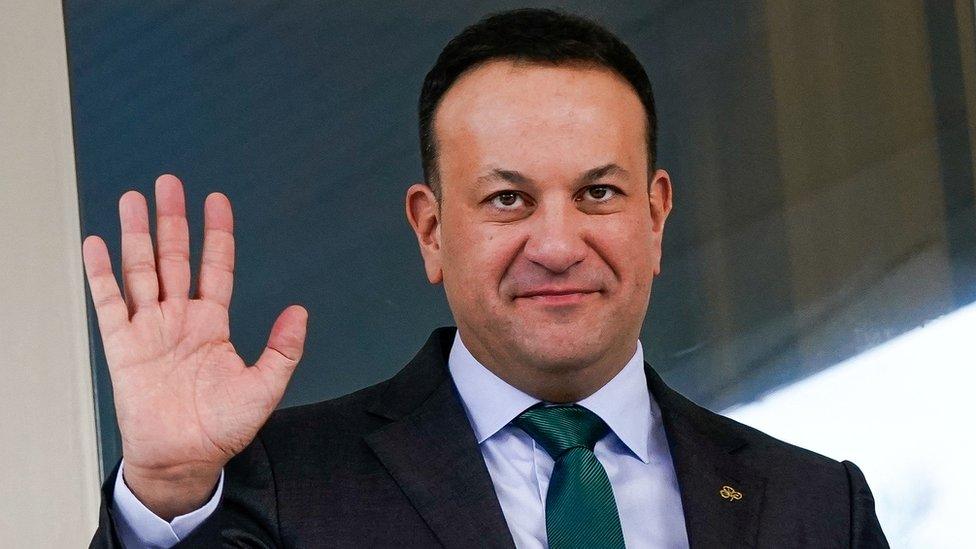
- Published14 June 2017
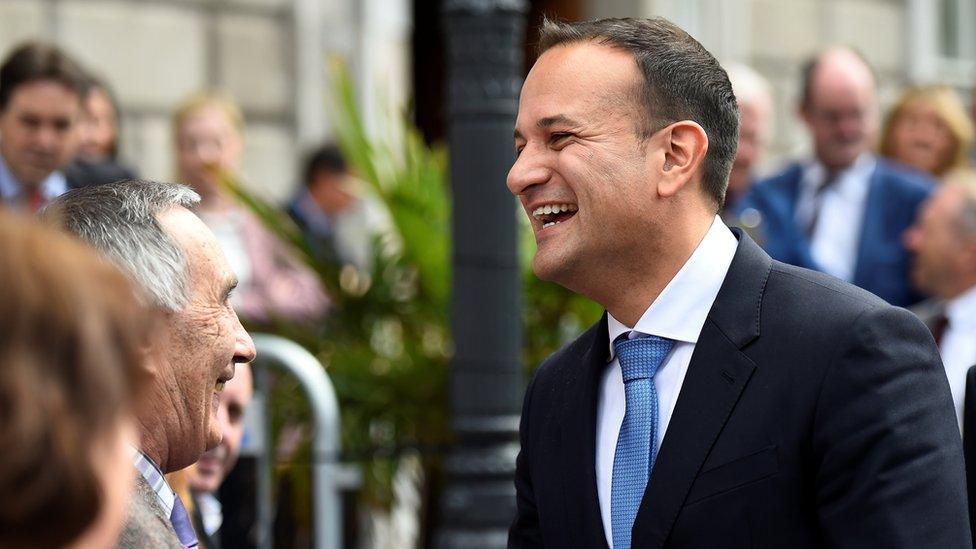
- Published7 February
